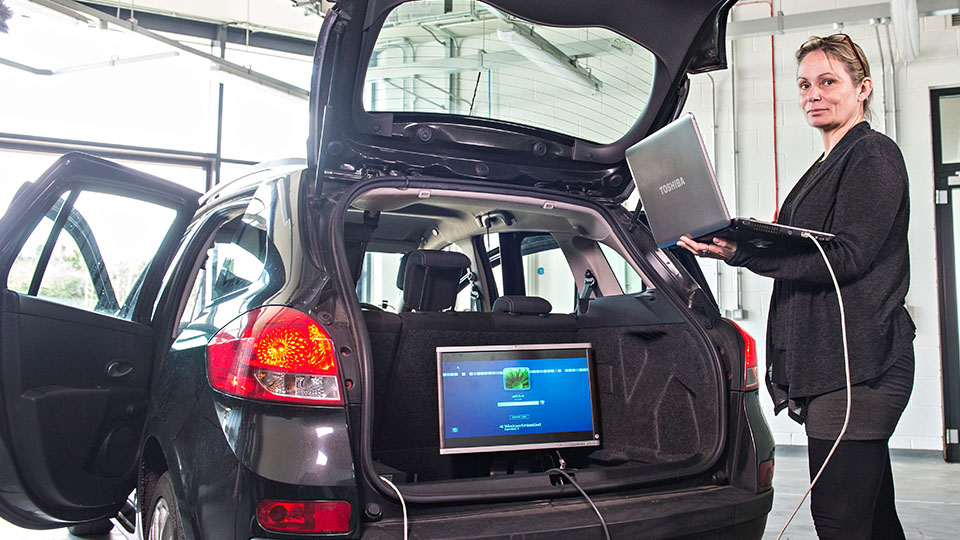
5 Apr 2016
Loughborough University selected to monitor natural driver behaviour in unique EU experiment
The €10 million collaborative study[1], funded by the European Commission and co-ordinated by SWOV - Institute for Road Safety Research (The Netherlands), will observe unobtrusively the various aspects of driver and rider behaviour - including acceleration, lane position, speed, eye movements, traffic densities and road conditions, among others.
UDRIVE, as it is known, involves the monitoring of cars, trucks and scooters for up to 21 months as part of naturalistic data collection whenever the vehicle is in motion; in daylight, darkness and all weather conditions.
Volunteers from six countries - the UK, The Netherlands, Germany, France, Spain and Poland - have agreed to cameras and data recorders being fitted to their vehicles and scooters for continuous footage and data collection.
Loughborough University’s Driver Behaviour and Injury Prevention Research Group is leading on the UK data gathering along with the Institute of Transport Studies at the University of Leeds, by equipping 30 cars with seven video cameras and a smart camera to cover both the external view of the vehicle and the internal view, including the driver’s face, hands, and feet.
The aim is to gain an accurate and in-depth understanding of actual road user behaviour in a natural setting and analyse the inter-relationship between driver/rider, vehicle, road and other traffic in a range of situations. The study will assess the risk of safety critical behaviour and eco driving. The insights gained will be used to identify new measures to make the European traffic system safer and more sustainable.
It is hoped this new approach will help meet targets to reduce vehicle emission levels and the number of crashes on our roads, set under Horizon 2020, the EU Framework Programme for Research and Innovation.
Ruth Welsh, Senior Researcher in the Driver Behaviour and Injury Prevention Research Group, said: “UDRIVE presents a fantastic opportunity to gain first-hand insight into drivers’ natural behaviour behind the wheel, harmonising data from other countries within the EU which have differing levels of road safety.
“By recording drivers continuously, we can analyse crash causation factors such as distraction (i.e. mobile phones) and interactions with vulnerable road users such as pedestrians and cyclists.
“It is the intention that post project the data will become a reliable source of information for subsequent analyses by road safety and environmental experts from all over the world.”
Dr Nicole Van Nes, co-ordinator of the UDRIVE project, said: “This naturalistic driving study offers the unique opportunity to study behaviours that we couldn’t study through other methods.
“In this study, we have effectively been able to look over the shoulder of the driver so that we can see the chain of events leading up to possible crashes. It also provides valuable insight into key safety topics such as fatigue and distraction, as well as dangerous driving behaviours.”
The study will run until 30 June 2017. To find out more, visit www.udrive.eu.